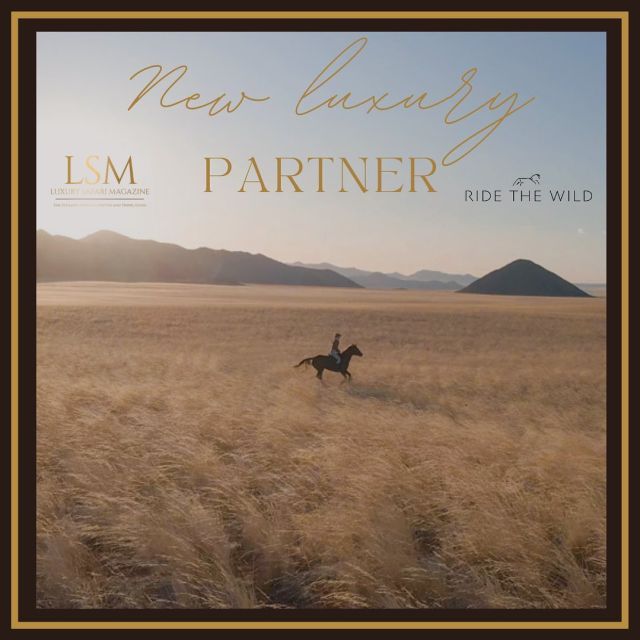March 29, 2022
Skip the Morning Game Drive for a Morning Chorus
Yes. I know that missing any game drive activities on safari is severely frowned upon. Not only do you have to contend with your own guilt of missing out, but you’ll soon be introduced to the Guide’s “disappointed face” when you tell them you’d rather sleep in… Well, dear Wildlings, I have news for you; if the morning chorus has anything to do with it, you won’t be sleeping in at all. (But you will learn a thing or two about birds.)
Let me quickly rewind, and turn the focus back to me for a second. Hi, my name is Jemma Wild and I am a Twitcher. “Hi, Jemma…”
For those of you that don’t know what a twitcher is, it’s a pain-in-the-behind birder. I’m a glorified #birdnerd who would rather scout out another lifer than watch a flat lion lazing about doing nothing but sleep. My husband and I have been birding since we met, and in the last 8 years, our life list is sitting at a healthy 430+.
(It would be more if we didn’t have a matrimony rule of only ticking off a new bird when both parties are present, and as you can imagine, as I travel a lot on my own, my lifers are rarely counted.)
So now that I’ve released this well-kept secret out into the world, we can carry on with our morning chorus conversation.
Waking up in the bush comes with its very own alarm clock: the birdsong. Before you’ve even thought about raising your head to greet a new day, (or think caffeine) the melodic sounds of the bush have chirped you awake. And if you’re yet to experience it, my honest advice would be to leave the alarm clocks at home because, like it or not, you’re in for an early start.
Knowing who of the feathered flock is starting the day in a high crescendo helps to appreciate a 4.30 am wake-up, plus you can later woo your field guide with birding knowledge on your next game drive. If you’re just starting out as a twitcher (ok, as a “bird-appreciater”, I won’t go too hard on the name-calling just yet) or if it’s your first visit to the African bush, in winter or summer, you will no doubt hear the common dawn breakers of the morning chorus. Loud and proud. Ready to get wax lyrical about birds? Come on, I know you want to!
What makes a birdsong?
A birdsong to the untrained ear can sound like a smorgasbord of sounds, but if you start to pay attention to each call you’ll begin to understand that it can be defined as a series of notes that form a recognisable pattern. Just like each beat in a song, so do birds have different pitches that identify them.
But how do birds know how to sing these individual calls? Instinct. And a little learning.
Birds generally make a noise when they lay claim to territory, need to attract a mate or signal a threat. Each of these can trigger vastly different sounds from birds of the same species. However, in the early hours of the morning as the world wakes up, most birds, particularly males, are using their courtship chorus which makes it easier to identify who is singing which love song to who.
There are some birds, which as a first-time-birder may cause you some confusion – robins, robin-chats and forktail drongos, common birds found in the African bushveld, are really good mimics, and really annoy us, birders. These particular birds are able to incorporate the calls of many other birds into their repertoire and can have up to eight different recognisable songs. Luckily, you can take a peek in this sound direction and identify this birdsong thief by their common appearance rather than relying on sound.
Why do birds have to start singing so early?
Without fail, dawn has barely cracked and the birds are signalling the day, but why do they need to do this an hour before sunrise? As science has said, early mornings are too dark to search for food and too dark to be spotted by a predator, so to get ahead of the wife-calling, birds, sing. There is also less background noise against the still air, making their sound travel 20 times further than it would any other time of the day. This enables them to woo a female counterpart and mark their territory audibly. (And also ensure the humans are awake and ready to start their day too.)
What common birds will I hear singing the songs of their people?
There are many birds of the summer bushveld that can be heard in the morning, but the most common, (and loud) are these summer singers.
Woodland Kingfisher – the rapper of the woodlands – it’s flash of blue and ringing call is a summer mascot.
Red-chested Cuckoo – its call sounds like it’s saying “Piet-my-Vrou” which is why it also goes by that name. These are super shy birds in nature, but boy do they have a voice to make up for it.
Gorgeous Bush-Shrike – as gorgeous as its name, but rare to see – try and imagine the sound of whistling water droplets, it’s a beautiful sound.
Black-crowned Tchagra – this consistent sound of the morning is like a warbling whistle of single notes that become slower and slower but higher in pitch.
Common birds of the winter morning chorus
It may be a chilly start to the day during the winter months, but this doesn’t stop the winter woo’ers from singing their song. Albeit a little later than 4 am, their morning song is still strong.
Southern Yellow-billed Hornbill – the whistle and the wave of them in flight is a sure sign you’re in the bush.
Black-headed Oriole – a fluorescent yellow bird with a black head and a song to boot – the rising and falling of their rich, liquid sound is just terrific.
Black-collared Barbet – often found in a duet that sounds like “ two puddy, two puddy”.
Purple-crested Turaco – a shy, beautiful bird most commonly recognised by its red wings in flight has a recognisable call that starts off quietly and builds up into a repetitive yet musical ‘kok kok kok’.
Iconic bird calls of the bush
Not just packed into your morning wake-up call, are two other iconic sounds that, in Africa, tell you that you’re here. These are:
African fish eagle – the majestic call of Africa, with a sound that travels distances, is a sight to see by a sound that makes memories.
Emerald-spotted Wood-Dove – is the king of the blues and a noticeable sound, however mournful. Its song sounds a lot like ‘my father’s dead, my mother’s dead, oh oh oh’
Waking up to a morning song sung by your own personal orchestra is just another reason that makes going on a safari so memorable. Now, all that’s needed to do is learn all the notes and conduct your very own birdsong lesson on your next game drive.

























